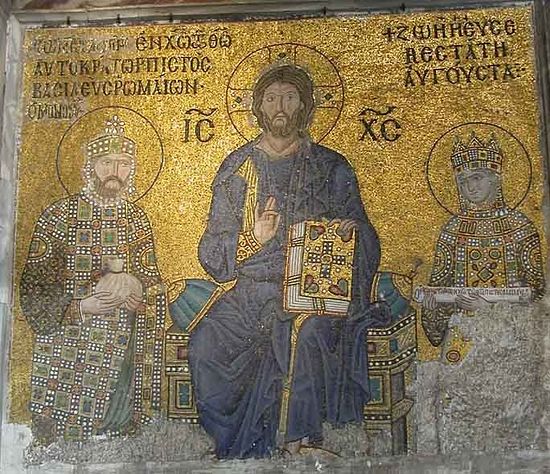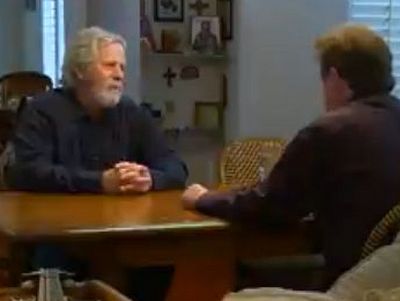We have much to say . . . but it is hard to explain because you have become slow at understanding. For although by this time you should be teachers, you still need to have someone teach you even the basic principles of God’s oracles. You have come to need milk, and not solid food. Everyone who lives on milk is not experienced in the word of righteousness; such a person is a baby. But solid food is for those who are fully grown, who have trained their senses to discern good and evil. —Hebrews 5:11–14
 Photo: Christian Stoll
Photo: Christian Stoll
It’s possible that many Orthodox Christians of the diaspora underestimate how much our culture influences, shapes, and even controls us. Orthodox Christianity in the English-speaking world has gone through some interesting times in recent memory, to say the least. But all in all, we are still in the infancy stages, in need of further asceticism, stability, and maturity.
What was once little more than a missionary effort and the natural result of immigration has become an area for promising growth in global Orthodox Christianity (despite the difficulties presented by the communist overthrow of Slavic nations and Eastern Europe in the last century). Recovery is more than underway, but the once-strong ties between mother lands and diaspora are less-so. And even as Orthodoxy has begun to slowly spread throughout the West in the past hundred years or so, we should come to grips with the world-views pervading our culture—individualism, relativism, and “whatever works for you.” These are all philosophies contrary to the apostolic faith, and they will not go quietly into the night.
What this means, then, is that the world in which Orthodoxy dwells (here in the West) is not the same world in which the Greek or Byzantine fathers dwelt, nor is it the world in which the apostles and prophets once dwelt. We are at a profound disadvantage as Orthodox Christians in the diaspora, despite all the various advances of our culture (such as technology, convenience, improvements in medicine, nutrition, or daily lifestyle, etc.). Even with all of our secular accomplishments, we are leading lives that are radically focused on what’s best for an individual. Our lifestyle is frenetic and often without any time or regard for either contemplation or reflection. In a lot of ways, the peasants and simple folk of centuries past had things a lot easier than we do, when it comes to both appropriating and living the Orthodox life.
We probably need to step back from time-to-time to take such things into consideration. We do not live in Constantinople, and we have no God-fearing Emperor. Byzantium is a matter of history, not present reality. Christendom is a dream that can barely be recalled in most respects. But not all hope is lost, especially as we strive to overcome the basic entanglements of this present, evil age.
 Emperor Constantine Monomakh and Empress Zoe before Christ. Mosaic Hagia Sophia in Constantinople. XI century.
Emperor Constantine Monomakh and Empress Zoe before Christ. Mosaic Hagia Sophia in Constantinople. XI century.
Christians in America are largely caught up in individualism. After all, Sola Scriptura (via-Renaissance humanism) teaches one to believe what they can themselves rightly discern from the Bible alone, as a final arbiter of faith. When individualism is mixed with Orthodoxy, it can have perilous results. A person can develop their own, private fasting rules, they might create their own, private prayers or devotions, they may find little use for Confession, they can get hung up on what they think a liturgy should really be like—all without ever consulting their local priest or bishop. This sort of individualism can even lead to legalism that causes division in parish, personal, and family life.
One of the reasons Christian piety in the diaspora can be derailed is that we quite honestly have a lot of free time on our hands. In comparison with the rest of the world, Americans are relatively well-fed, gainfully employed, and value recreation and idleness as a reward for success. In places of persecution today (such as in North Africa and the Middle East), Orthodox Christians do not have the leisure to criticize the way their fellow worshiper crosses themselves during a service, nor are they concerned with the minutia so often at the heart of our petty disputes. Politics take a backseat, while being devoted to simply following and living-out their faith—even in the face of death and persecution—are of the utmost concern.
Given the challenges of living the Orthodox faith in America today (and the West in general), there is a need for sobriety. Our experience with asceticism is either nonexistent or lacking at best, and our assimilation into this new and wonderful family of God will take time for each of us. Our culture is, in most respects, opposed to the claims and practices of the Orthodox Church. To dive in head-first can be tantamount to spiritual suicide. Many have made a shipwreck of their faith or fallen away completely as a result. We must rather embrace the discipline and the struggle.
Perhaps the apostle Paul’s admonition to the Hebrews of the first century is the same needed for diaspora Orthodox Christians of the twenty-first? We need to begin with milk, rather than solid food. The discipline and ascetic ideal proposed by Orthodox Christianity cannot be instilled overnight. We need time: time to adjust and soak up the beauty of our faith; time to learn the true meaning of love; time to learn what it means to give alms and to pray for and take care of each other; time to learn to worship and pray; time to stop confusing emotionalism with spirituality; time to experience a paradigmatic shift, both in our minds and in our hearts; time to acquire the Holy Spirit. We need to begin with milk, not solid food.
Orthodoxy is a wonderful, beautiful and all-encompassing change of life. It’s not like changing socks or buying a new car. It’s not even like transitioning from one Protestant church to another. It’s unlike anything else we can experience in this life, for it is fundamental to life itself—it’s a reception of the kingdom of God, an incorporation into the very Body of Christ, and a transformation of the highest order. It’s a life lived with one foot in eternity, and the other in this present, evil age.
If our union with Christ is a move from darkness into light, then perhaps no better analogy can be given than that which we find in the apostle John. To move from darkness into light—from blindness to sight—is an extreme change. This is something beyond mere belief and on the scale of redefining everything about not only who we are, but also how we both understand and experience the world around us. If the blind are granted sight for the very first time, do they immediately adjust to this new sense perception? Or is time and discipline needed in order to make an appropriate, safe transition? I think everyone would reasonably agree with the latter. And this is how we should view our conversion to the Orthodox faith.
In one sense, of course, there is nothing new underneath the sun. In another, one can rightly say that we are living in a day and age that is unbelievably opposed to the Gospel. We are especially desensitized to all of this, needing time for the right perspective.
The beauty of the Orthodox Church is that it provides a place of solace and rest from the turmoil of this world—but only if we are willing to strive to both receive and put this faith into practice. And this is easier said than done. A willingness to submit to an authority other than ourselves is a crucial first step. Beyond this, we must be willing to live a life that is almost wholly contrary and even other-worldly in comparison to what occurs all around us. The Church and our faithfulness to what She stands for must be our hope and our calling, believing that it is truly the Body of Christ; the one holy, catholic, and apostolic house of God (of which we are all a part).
If the Church is our Mother, as saints such as Cyprian have claimed, then we must be ready to listen to our Mother when it comes to knowing if we’re ready for solid food. But let us all start with the milk, and be willing to do the work necessary to aid us in our transformation from darkness into light.


